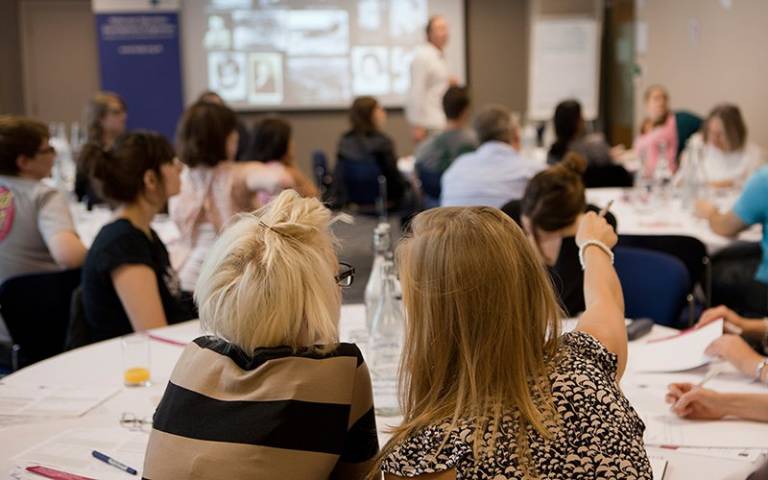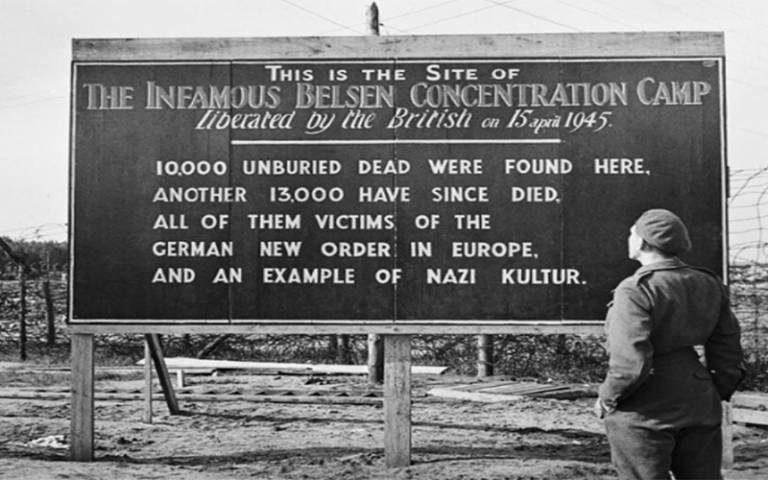£1.7 Million fund to educate the next generation on the Holocaust
9 November 2018
The UCL Centre for Holocaust Education welcomes the recent budget announcement allocating £1.7 million to educate the next generation about the Holocaust.

Teaching future generations about the Holocaust is imperative to ensure that as a society we attempt to eliminate racism in all its forms. The tragic events at the Tree of Life Synagogue in Pittsburgh as well as the troubling re-emergence of extremist groups in the UK and beyond, emphasise the profound importance of the work that we, and many other organisations, undertake in striving to ensure the maintenance of a more thoughtful, caring and empathetic society.
This has to begin with education and we, at the UCL Centre for Holocaust Education work tirelessly to support teachers in their communities to this end.
The Treasury emphasises that, “organisations specialising in Holocaust education will be able to apply for the funds to support projects in schools and visits to the Bergen-Belsen camp, in Germany, as part of pupils’ education on the horrors that took place during the Holocaust.” The Centre, therefore, eagerly looks forward to assisting the government and other leading Holocaust education organisations in this timely and important enterprise.

Our 2016 national study of more than 8,000 students’ knowledge and understanding of the Holocaust - the largest study of its kind anywhere in the world, revealed that typically young people in England have a very limited knowledge of this history. In particular, students’ understanding of Britain’s role in, and response to, the Holocaust was especially ill-informed and often wrapped up with popular myths and mythologies. Meanwhile, that only 15.2% of students recognised Bergen-Belsen as being associated with the Holocaust, clearly indicated significant holes in young people’s knowledge. Cumulatively this suggests that the government’s £1.7 million educational investment is well placed.
In recent years the Centre has responded directly to this research by developing for teachers a sophisticated series of resources, lesson plans and professional development programmes which address these gaps in students’ understandings. These include a sequence of lessons on British responses to the Holocaust using sources from a range of British archives to help students better understand Britain’s role in the liberation of Bergen-Belsen. These lessons aim to teach teachers how to best approach the common misconceptions on the subject, being able to inform students and be confident about their approach in the classroom.
Critically, compelling evidence now exists to show that UCL Centre for Holocaust Education programmes and resources have had a demonstrable impact on improving students’ knowledge and understanding.
As a result, we believe that the UCL Centre for Holocaust Education is exceptionally well placed to help teachers and students comprehend more fully the nuances and complexities of Britain’s responses to the Holocaust.
The need for this deeper understanding is particularly salient as we approach the 75th anniversary of the liberation of Bergen-Belsen by the British Army in 2020. The Centre, therefore, eagerly looks forward to assisting the government and other leading Holocaust education organisations in this timely and important enterprise.
 Close
Close

